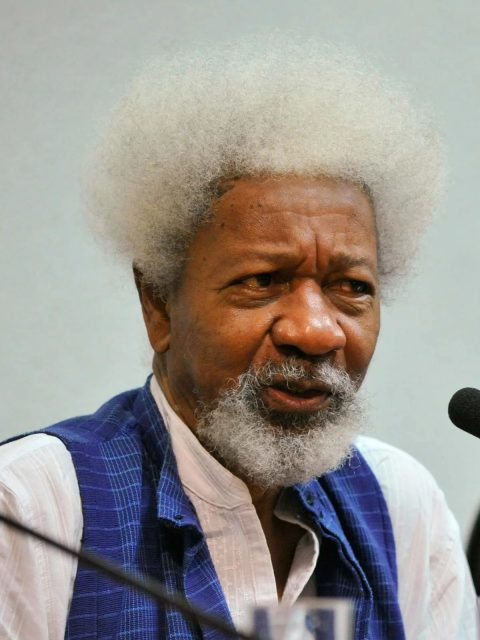Poem: A Government Driver On His Retirement By Chibuike Onu; This poem is necessary for students who are sitting for the following examinations and should be studied so as to stand a chance of passing the exams. JAMB, WAEC, NECO, GCE.
A Government Driver On His Retirement By Chibuike Onu
Many years on wheels
In faithful service to his fatherland
Today retires he home
And a celebration he holds
Many years has he pummeled his boozy throat
In obedience to duty rules and regulations
Today, he’ll go home a freeman
Eligible for his country’s services
“Come friends, rejoice with me
I shall booze and zoom myself home
Away from duty rules
Come celebrate my freedom”
“Early to duty tomorrow holds not,
Thirty-five years of faithful services
I’ll booze to sleep away my sufferings
Today I’ve long waited for”
More joy to send him home
A brand new car in his name
An appreciative symbol
For undented thirty years of service to fatherland
“Come friends, and rejoice more,
Joy till no more joy to joy
Today frees and makes me a king
My patience rewarded.”
And so, he boozed and boozed
Celebrating the celebration of his retirement
From faithful service to fatherland
He battled with his bottle booze
On his way home on wheels,
Booze boozed his vision and clear judgment
He boomed his brand new car
And it sent him home
Home to rest in peace.
— Chibuike Onu
THEMES OF THE POEM A GOVERNMENT DRIVER ON HIS RETIREMENT
The Peril of Drink-and-Drive Culture: the poem emphasizes the dangers of the drink-and-drive habit. The poet corrects the lunatic behaviour in society through the poetic reflection on the end of the government driver as a result of his unrestrained excitement, especially in a society that believes that alcoholic drinks are best to celebrate a period of achievement, festivals, corporations, and so on. The didactic nature of this poem tends to correct the consumption of alcohol, which can lead to early death, particularly when driving.
The Reward for Valuable Service: Despite the poet persona’s grudges about the strict rules and regulations he had to abide by for thirty-five years of service, he remains disciplined until the day of his retirement. After thirty-five years of service, he has been rewarded a brand-new car, discharging his duties with outstanding performance and loyalty to his employer.
POETIC DEVICES IN THE POEM A GOVERNMENT DRIVER ON HIS RETIREMENT
Synecdoche: This is a figure of speech in which a part represents the whole. This is used in lines 1, 5, and 29 where steering “wheels” represent vehicles driven by the driver and “boozy throat” represents the government driver and the implied suppression of his love for alcohol or his struggle to maintain focus while drunk on duty.
onomatopoeia: This is a characteristic of a word that sounds like what it represents. This category includes the words “zoom” and “boom,” which appear several times in the poem, the former implying the humming noise of a fast-moving car and the latter implying the sound of an explosion.
personification: This simply means bestowing a human attribute or action on an animal or inanimate object that is incapable of possessing or performing it. Lines 23 and 32 use it: “Today frees and makes me a king” and “And it (car) sent him home.”
Resonance: This is the repetition of vowel sounds that are similar or identical. Line 10 contains an example of assonance: “booze and zoom.”
Pun: This is a type of wordplay in which two words or phrases with similar meanings or sounds, or different meanings of the same word, are purposefully confused. The poet purposefully played with the definitions of the word “home.” Up until line 29, “home” refers to the driver’s residence. However, in the poem’s final two lines, “home” becomes the grave, a place of eternal rest.
alliteration: This is the repetition of consonants at the start of two or more words in a poem line. This was mentioned several times in Chibuike Onu’s “A Government Driver on His Retirement.” Lines 2, 3, 4, 5, 6, 7, 13, 15, 17, 18, 22, 23, 25, 26, 27, 28, 29, 30, 31, and 32 use it: “faithful fatherland”; “he home”; “has he his”; “rules and regulations”; “he’ll go home”; “to duty tomorrow”; “sleep sufferings”; “him home”; “new name”; “Joy till no more joy to joy”; “make me”; “boozed boozed”; “celebrating celebration”; “faithful fatherland”; “he battled with his bottle
SUMMARY OF THE POEM A GOVERNMENT DRIVER ON HIS RETIREMENT
Onu’s “A Government Driver on His Retirement” recounts the poet’s meritorious service to his fatherland land as a driver. It was his final day on the job before retiring. He decides to celebrate his liberation with friends, as is common among many civil servants. Friends, colleagues, and family members gather to celebrate with them on their last day.
In stanza two, the poet’s use of diction reveals the poet’s persona’s job frustration—the inability to meet all of his requirements. ‘I’ll booze to sleep away my suffering/ Today, I’ve long waited for…’ are lines 15 and 16.
These lines also revealed how the poet persona dislikes his job, but he has to put up with it, following the rules and regulations for thirty-five years because he has no choice.
These lines also revealed how the poet persona dislikes his job, but he has to put up with it, following the rules and regulations for thirty-five years because he has no choice.
In stanza four, we notice a shift in the poet’s persona’s mood. The persona’s joy multiplies when he receives a brand-new car as a reward for his outstanding service. Even though he is dissatisfied with his job, we can see from the gift that he is a faithful and trustworthy servant. Line 20 “For undented thirty-five years of service to the fatherland
Finally, in the final stanza, we witness the irony of life as the poet, in his overjoyed mood, drives home drunk in his brand-new car, losing control of his vision and then the wheel. He is killed in a car accident. It is commonly stated that having too much of anything is dangerous.
Questions On The Poem A Government Driver On His Retirement
1) Discuss how irony is used in the poem.
2) In A Government Driver on His Retirement, comment on the poet’s use of sound devices.
3) Discuss the themes in the poem
4) Comment on the poet’s use of diction and imagery.
5)Examine the various meanings of “home” in the poem
6) Describe the tragedy that befalls the government driver








